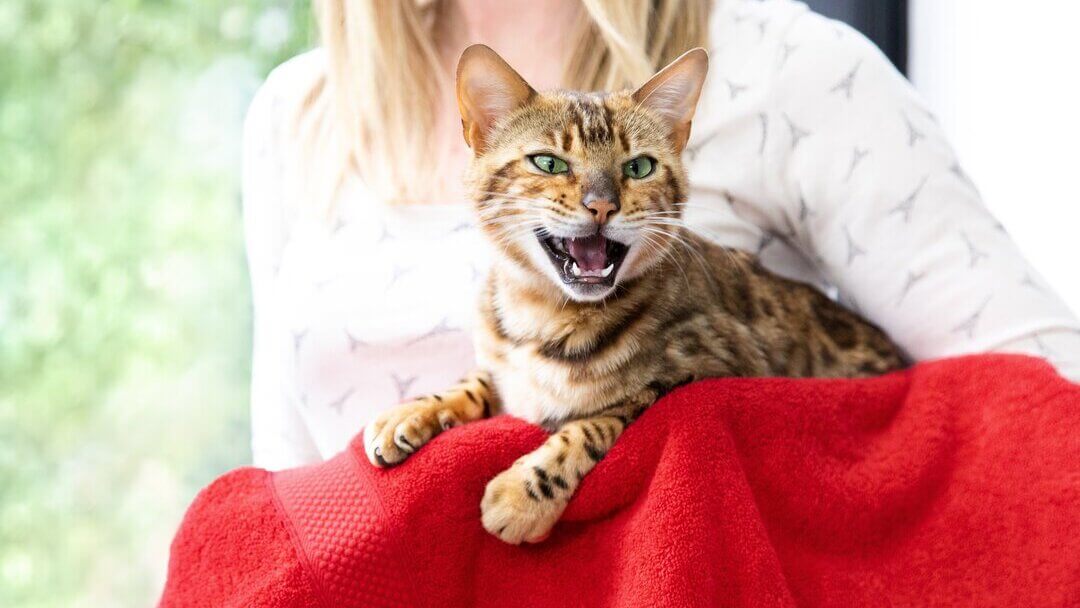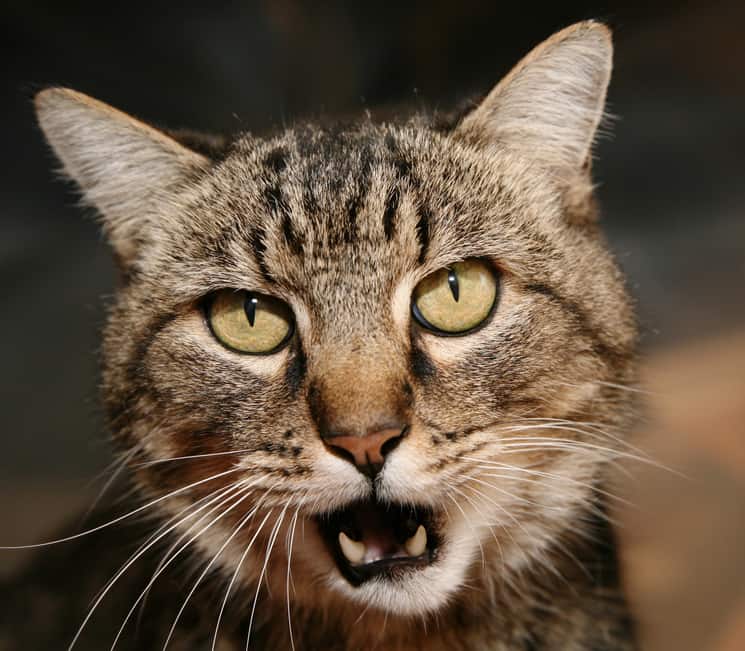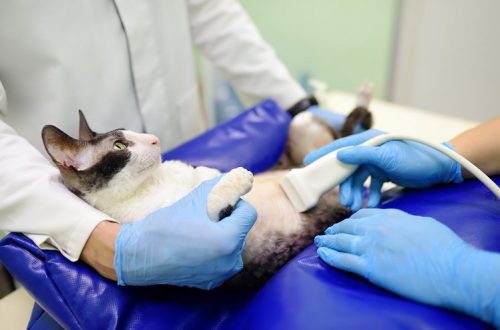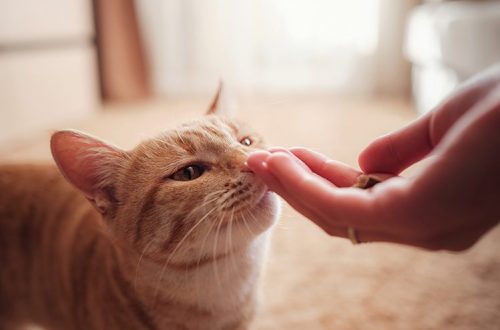
Why does a cat scream at night
Almost every cat owner has experienced a situation where his deep sleep was suddenly interrupted by a piercing cry. No, it’s not a nightmare – it’s just a cat.
Contents
Why does a cat scream at night for no reason? Or does she have a reason?
Some cats are naturally talkative. For example, this is a very characteristic behavior for the Russian Blue, but most furry friends need a specific reason to talk. If a cat meows at night, it means that she has something to say, and she wants to do it right now.

Why do cats yell at home at night
Vocalization is just one way a cat communicates with the human family, and sometimes with another cat. Cat language is mostly non-verbal, so vocal cues are an effective way to get attention. You can probably ignore a pet that climbs onto the keyboard in the midst of the owner’s work. But what to do when the cat began to meow at night? Looks like she needs to pay attention.
During the day, when the cat is busy with its own affairs, it is usually quite calm. The owner is awake and communicating with her, so there is simply no need to scream. But cats are crepuscular animals, which means they are most active during the sunset and dawn hours.
The fluffy beauty is programmed to start vigorous activity with the sunrise, that is, during the dead of night. The cat yells at night because it is hungry or wants to play with the owner in the wee hours.
When to worry
As Animal Planet writes, with age, a cat’s need to be closer to people becomes stronger. Being away from the family for the night can be frustrating and worrying. Some age-related problems, such as hearing and vision impairment, may cause her increased anxiety and irritation, which she will express through screaming.
Neurological conditions can also affect a cat’s sleep cycle, such as cognitive dysfunction that occurs in furry friends older than 10 years old. Loud midnight meowing for no reason can be a sign of dementia, according to the Cornell Cat Health Center. Like humans, the sleep-wake cycle in older animals can become disrupted, causing them to sleep during the day and roam at night. If an older pet exhibits unusual behavior, such as staring at a wall for a long time with an unblinking gaze or refusing to eat or drink, you need to take it to the veterinarian.
The cat yells constantly at night, but is she healthy? So maybe if she is unsterilized. According to the ASPCA, apartment cats can go into heat all year round. Spaying is the best way to reduce excessive meowing. In addition, this procedure reduces the risk of diseases such as uterine infections and certain types of cancer.
Living with noise
There are several ways to curb a cat’s nocturnal antics. If she loves to eat, it’s best to feed her before bed. Vigorous play activity can also help with midnight screams. Of course, easier said than done, but one should try to ignore such inopportune demands for food and petting. Indulgence will only reinforce this behavior, and eventually the owner and the entire family will stop sleeping at night altogether.
Most often, cat calls at night are not a cause for concern. Cats have perfected the art of waking up their owners at night for a variety of reasons. But the main reason is that they just want to spend more time with their most loved person in the world.





